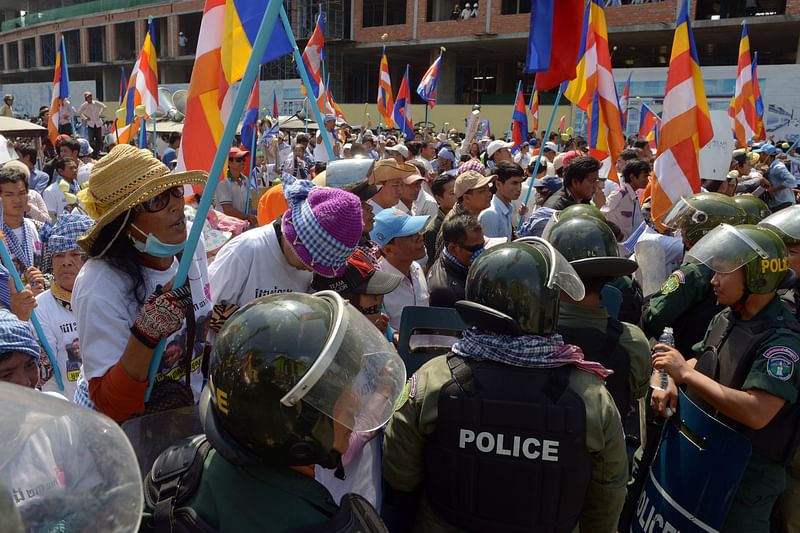20,000 Cambodian garment workers strike over bonus

Around 20,000 Cambodian garment workers have joined a strike to demand a $50 bonus for shunning walkouts over the last three months, a union official said on Monday, in the latest labour dispute to rattle the kingdom’s lucrative but troubled garment sector.
Workers at around 30 factories in two special economic zones near the Vietnamese border want the bonus after a union said that two factories had rewarded employees for not participating in the strikes, which routinely cripple the industry.
“Most of the factories have denied the demand,” Pav Sina, president of the Collective Union of Movement of Workers, told AFP.
Keo Kong, police chief of eastern Bavet city, where the factories are based, confirmed the workers were on strike, adding: “No solution has been reached.”
About 650,000 workers provide the backbone of Cambodia’s multi-billion dollar garment industry — a key source of foreign income for the impoverished Southeast Asian nation.
The Garment Manufacturers Association of Cambodia (GMAC) denied factories had promised to pay workers for not striking and warned their action could snowball.
In a statement on its website the GMAC called on authorities to prevent “illegal activities” that could lead to violence, accusing some of the striking workers of hurling stones at factories.
Garment workers have been at the forefront of labour protests for higher wages and have faced several crackdowns by Cambodian authorities.
At least four civilians were killed in early January when police opened fire on protesting textile factory workers who were calling for a minimum wage of $160 a month to make clothes for brands including Gap, Nike and H&M.
Pav Sina said trade unions and workers would mark international labour day on Thursday by marching in the capital Phnom Penh to demand higher wages, better working conditions and the release of activists and workers arrested in the bloody January protests.
Twenty-three of those arrested during the crackdown went on trial Friday, despite international appeals for their release.
The court adjourned the trial to May 6.
Rights groups say if convicted the defendants -- most of whom have been detained for months without bail -- could face up to five years’ jail.